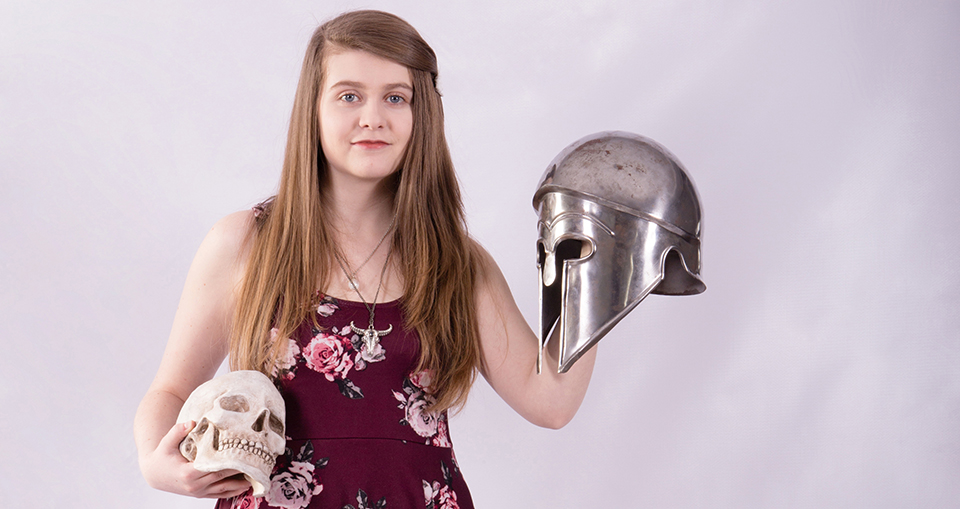From the spring 2017 UNCG Research Magazine
“Burials show what the society values,” says undergraduate researcher Ena Prskalo, explaining her interest in ancient Athenian grave sites.
Prskalo, a sociology major with a minor in classical studies and a growing interest in archaeology, investigates the subject under the guidance of Associate Professor of Classical Studies Joanne Murphy.
Prskalo’s work began as a project for Dr. Murphy’s Archaeology of Death course. Murphy encouraged her students to pursue their own research interests through the lens of the class.
“It allowed me to work in a different discipline while also growing stronger in my own,” says Prskalo of Murphy’s research assignment. Prskalo, who had previously examined deviance in her sociology coursework, decided to apply her interest to classical burial traditions.
Using periodicals and photographs of ongoing excavations of Athens, she analyzed the location of burials, how bodies were laid out, and the objects that were buried with them, discovering which burial arrangements could be called “deviant.”
“In my work, deviancy doesn’t necessarily mean that a particular group is bad,” explains Prskalo. “I looked at burials and bodies that stand out from normal practices and expectations.”
In the Athenian society, honored warriors were given elaborate burials to show their special status, and they were interred outside normal burial locations. Their lavish funerals were accompanied by public games and speeches that were ordinarily prohibited by Athenian law, which required most burials to take place in quiet seclusion.
On the other end of the deviance spectrum, some Athenian children and people with disabilities have been found discarded in wells, and certain foreigners were buried faced down. Prskalo postulates that these individuals weren’t seen as real Greek citizens or contributors to the Athenian society.
Examining the ancient gravesites led her to contemplate contemporary burial practices and how they demonstrate societal values.
“That’s something we should take into consideration — how we treat the dead, and how we treat certain people and value some over others,” Prskalo says.
Prskalo, who conducted her research with support from the Undergraduate Research, Scholarship and Creativity Office (URSCO), has presented her burial findings at three conferences, including the International Conference of Undergraduate Research. This spring, with funding from URSCO, she will present her work at a fourth — the 2017 National Conference on Undergraduate Research at the University of Memphis.
But the dead aren’t the only deviants piquing Prskalo’s interest.
She has begun two new independent research projects, one that looks at the subculture of Juggalos, fans of the hip hop group Insane Clown Posse, and another that examines suicide.
Now a senior, Prskalo plans to pursue a graduate degree in sociology. She hopes to focus on the sociology of death and continue her work examining ancient burial practices.
“Every class has helped me improve the way that I gather data, interpret data, or write,” she says. “I’m grateful for everyone in the sociology and classical studies departments fueling my interests.”
Having teachers ask her to do her own original research for the first time, she says, really helped her grow into the scholar she’s become.
